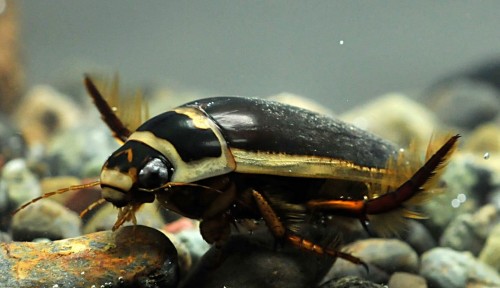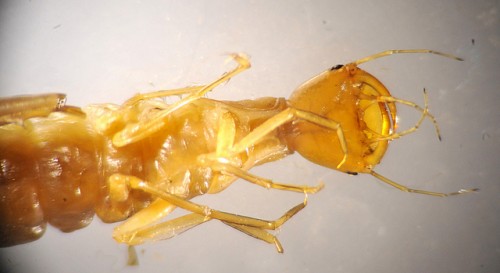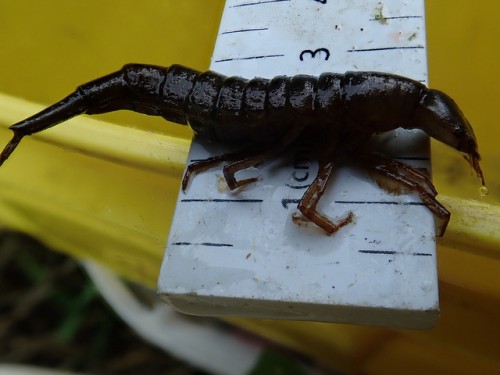- 509 species in North America
| Phylum: | Arthropoda` |
| Class: | Insecta |
| Order: | Coleoptera |
| Family: | Dytiscidae |
Identification Tips:
Larvae
• Can be very large; to 70 mm
• Jaws include 2 large piercing fangs
• Legs long and slender with 5 segments ending in 2 claws
• Abdomen narrows to a distinct point
Adults
• Large bodied; to 50 mm in Fraser Valley
• Body hardened and convex on top and bottom (Water scavenger beetles are concave on bottom)
• Often rest hanging into water with tip of abdomen at surface
• 2 long antennae
• Short finger-like mouth parts, not visible from above
Life History:
• Primarily found in shallow, weedy, still water
• Live for 2 to 3 years
• Larvae climb on plants and debris
• Predatory; inject prey with digestive juice, and suck out dissolved tissue
• Breath air through valved openings at back of abdomen and through skin
• Adults are strong swimmers
• Prey on variety of invertebrates and small fish and amphibians
• Do not inject digestive juices, tear prey apart
• Carry air bubble under wings while diving
| POLLUTION TOLERANCE | ||||
| Very Sensitive | Somewhat Sensitive | Facultative | Somewhat Tolerant | Very Tolerant |
| Most | Some | |||
––––––
Primary Information Source:
Voshell, J. Reese. 2002. A Guide to Common Freshwater Invertebrates of North America. McDonald and Woodward Publishing Company. Blacksburg, Virginia.



